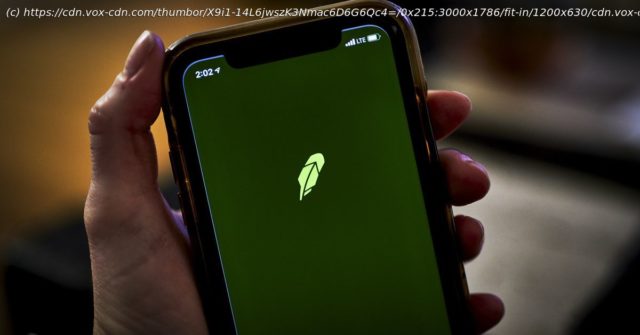Robinhood has been ensnared in the GameStop run started by WallStreetBets, and legal problems could be on the horizon.
At the center of the GameStop stock trading frenzy is Robinhood, a trading app for regular investors that says it’s out to “democratize finance.” But the growing chaos in the stock market is really testing the limits of that mission. Robinhood, which is currently the most downloaded app on both the Apple and Google app stores, was founded in 2013 and launched in 2015. It has been a game changer in the retail trading space, largely because it allowed for commission-free trading, and others followed suit. Basically, that means when you buy or sell a stock on Robinhood — or on online brokerages like Fidelity, nowadays — there’s no charge. (Just because Robinhood does commission-free trading doesn’t mean it doesn’t make money. The company is valued at more than $20 billion and is set to go public early this year.) In recent months, as day trading and individual investing have really taken off, so has Robinhood. If you don’t have a Robinhood account at this point, you might know someone who does. So why is Robinhood in the news right now? Lots of people have gotten into trading lately, especially during the Covid-19 pandemic. They’re bored at home, many have money to spare, and trading can be fun, especially on Robinhood’s gamified platform. Reddit, TikTok, and Twitter are also spurring the trading trend and getting people into finance. In recent days, traders have piled on to certain stocks — namely, the retailer GameStop — causing enormous amounts of volatility and some serious finger-wagging from Wall Street. Many of the trades are being made on Robinhood. The platform has made trading super easy and, some would argue, almost addictive, so that it feels more like gambling than it does investing. Now Robinhood appears to be trying to pull back a little and is trying to clamp down on some risky activity there. Or, at the very least, it’s trying to address the frenzy around GameStop and other volatile stocks. Robinhood received an enormous amount of backlash after announcing Thursday morning that the company was restricting trading on a number of stocks, including GameStop. Some users have joined a class-action suit against the company that says it manipulated the market by restricting trades, which caused users to lose money. Rep. Alexandria Ocasio-Cortez (D-NY) has called on Congress to investigate. In fact, the issue is bringing together all types of unexpected allies — including Ocasio-Cortez and Sen. Ted Cruz (R-TX). Well, sort of. Sen. Elizabeth Warren (D-MA) appeared on CNBC on Thursday to talk GameStop. She weighed in on how Robinhood, which, like many similar firms, has people sign arbitration clauses that say they’ll solve disputes in arbitration instead of before a judge or jury. She also called for the Securities and Exchange Commission to have clearer rules about market manipulation. “We need an SEC that has clear rules about market manipulation and then has the backbone to get in and enforce those rules,” Warren said. “To have a healthy stock market, you’ve got to have a cop on the beat.” New York Attorney General Letitia James tweeted Thursday evening that her office is “actively reviewing concerns” about Robinhood’s GameStop activity. Robinhood helped bring about the latest day-trading revolution, and now it seems like the company is partially trying to stamp it out. What’s not clear is why. Robinhood, briefly explained Robinhood is an app that lets investors trade stocks without paying a fee. Before Robinhood, people had to pay each time they bought or sold a stock. These fees presented a barrier to entry to many retail investors, who are regular people who are trading stocks —largely thanks to apps like Robinhood. Since the advent of Robinhood, other online brokers like Charles Schwab, E-Trade, and TD Ameritrade have dropped their fees, but these companies aren’t as popular. Robinhood said it had upward of 13 million accounts as of last May, although due to the recent retail trading boom, that number is likely higher now. Typical account sizes range from $1,000 to $5,000. These sums aren’t enough to move a market alone, but en masse, retail investors have been shown to drive up certain stock prices. Robinhood has not been without controversy. It has been criticized for gamifying trading and making investing feel like gambling. When you sign up, it offers you a free stock and encourages you to invite your friends to get more. The screen turns green when you’re up and red when you’re down, and when you trade, it sometimes sends you confetti and gives you the money instantly so you can trade again. It’s easy to see how people get sucked in fast.






